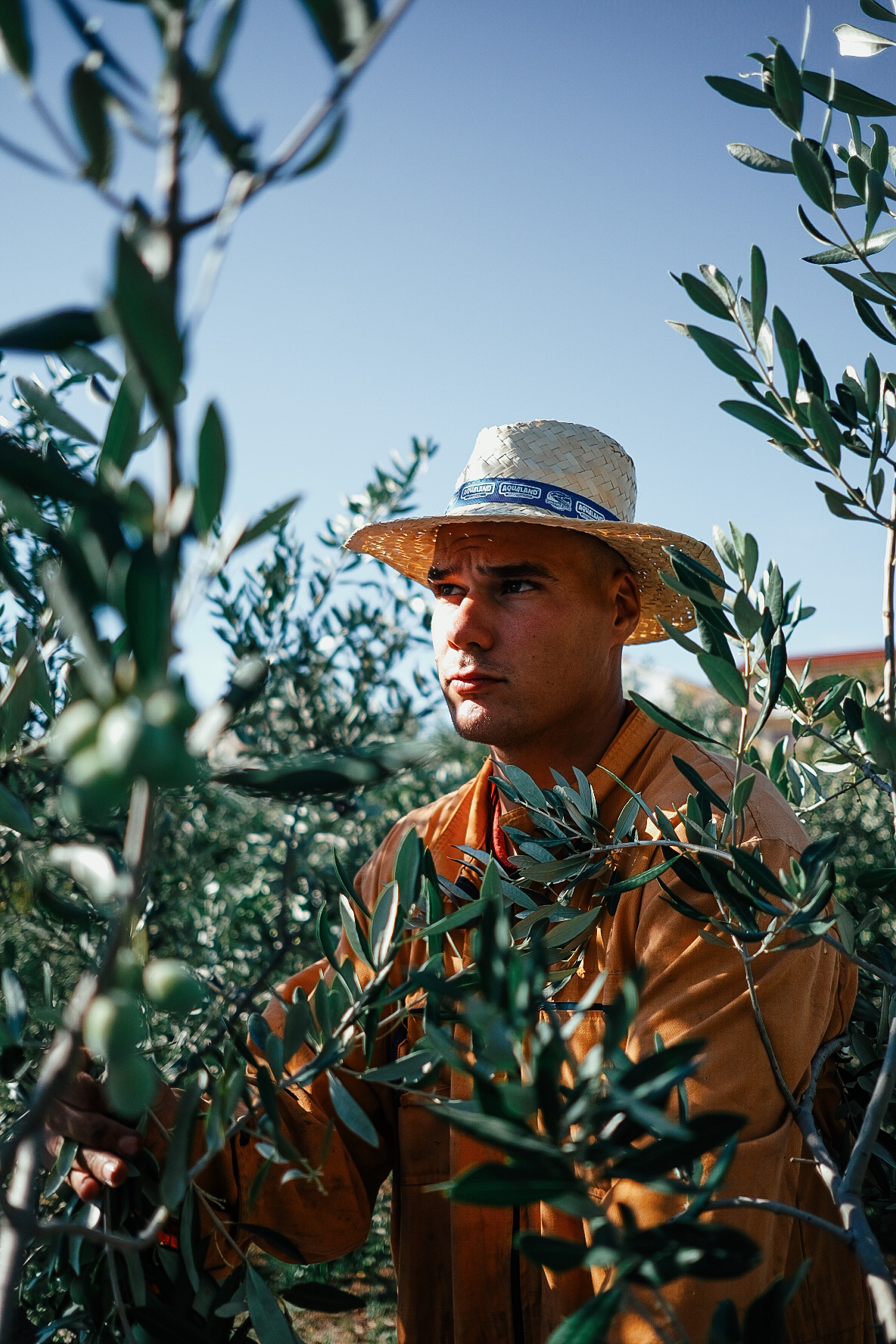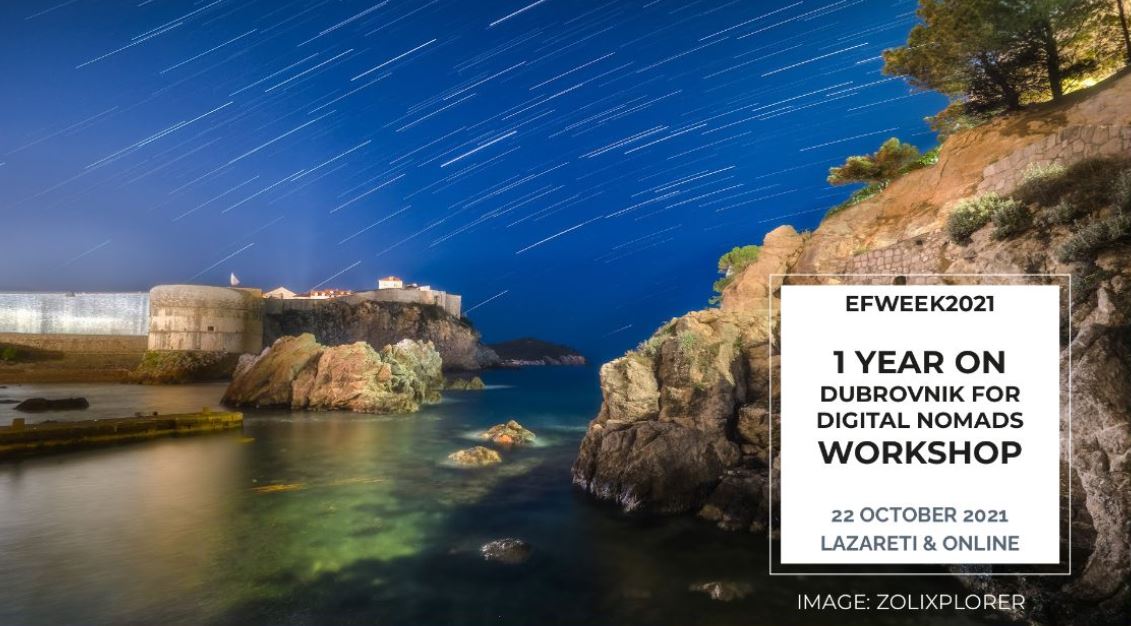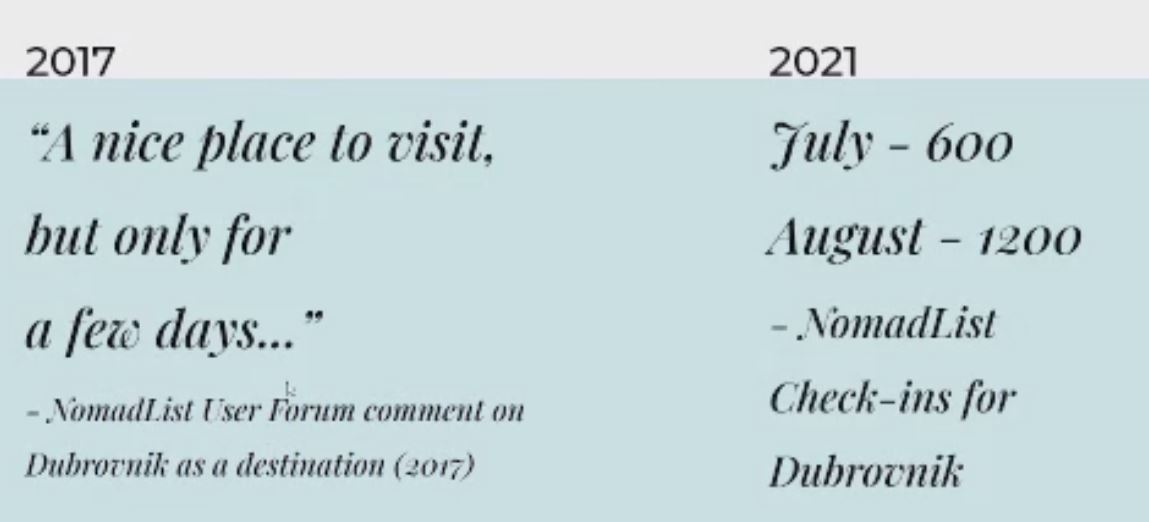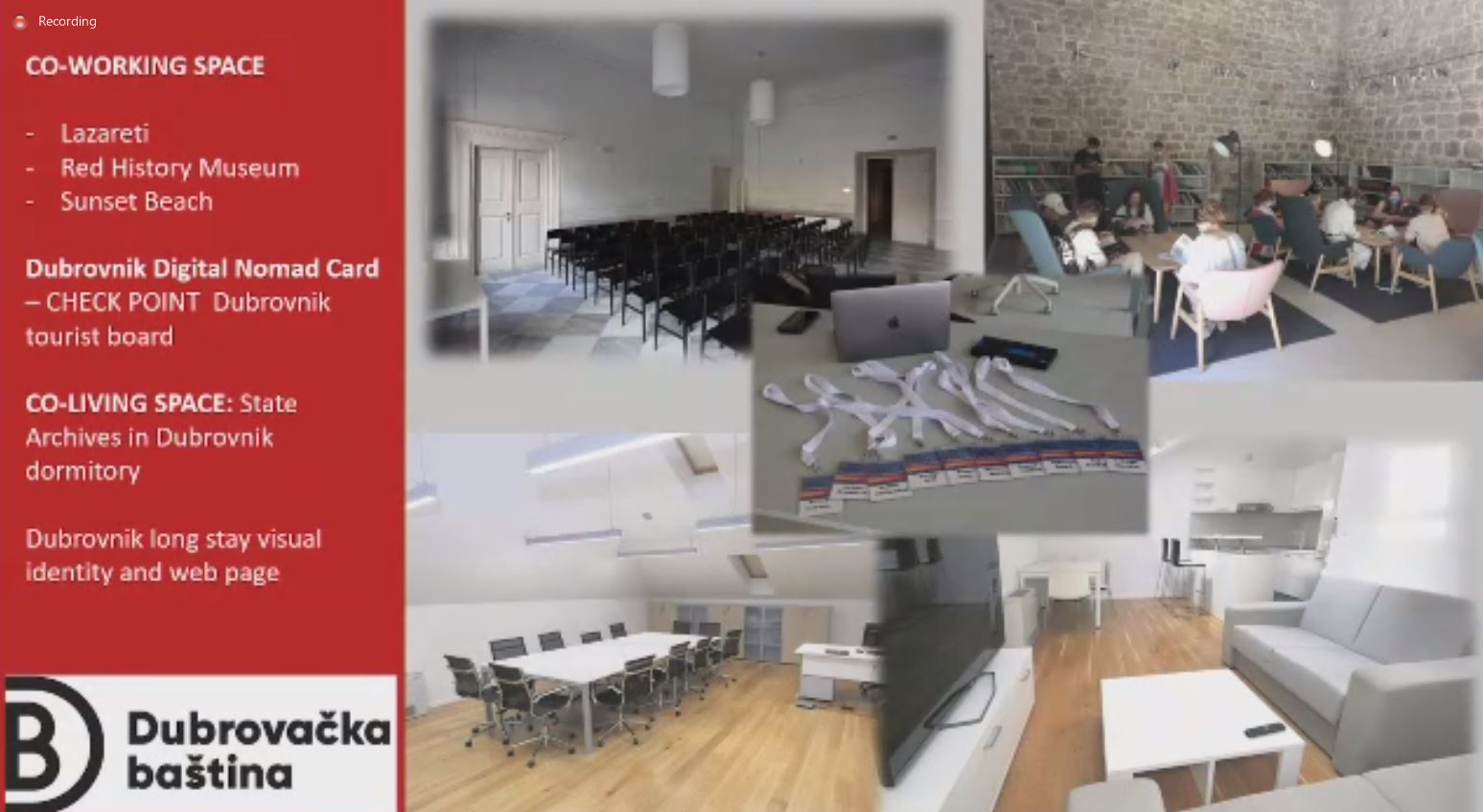Olive Picking Experience in Podstrana: A Short and Visual Story
October 22, 2021 - After patiently waiting a year for the next olive picking season, I encouraged myself to take a closer look at this tradition. The result? A beautiful day, a great experience, thousands of olives, new friends, and many, many photos!
A couple of weeks ago I wrote a reflection as a result of the two years since I arrived in Croatia. In it, not only did I want to share several anecdotes about that time, but I felt encouraged to list ten reasons why I believed that it could be easy for someone to adapt their lives here in Croatia, based on my own experience. If I could be able to summarize that article in a few words, I think I could do so by saying that Croatia is a country that successfully manages to harmoniously combine heritage, ruralism, and ancient traditions, with development, urbanism, and Western influence. It is a country where you can walk the elegant streets of Ilica in Zagreb or Marmontova in Split, as well as visit the fields of Slavonia or the vineyards of Istria, and not feel any kind of barriers or class gaps. It is, in short, a country for everyone.
There are many ways to prove to yourself that you have managed to adapt effectively to a new country: learning the language, making new friends, finding a job, buying a house, learning how to prepare a local dish, and more. But I feel that I personally cannot feel fully integrated in Croatia if I do not follow closely the activities and traditions that its people have carried out for hundreds of years. The great thing about Croatia is that there is a peaceful coexistence between these traditions and their respective industries (and in some cases, it can be exclusive to home production). In my country, on the other hand, many of these traditional activities are being displaced by large industries, such as consumer fishing, wine, or agriculture. However, it is not my intention to delve into a very complex topic that may require me to know about topics that I still need to learn more about. What I want to say is that in Croatia I find it very difficult for an activity inherited by generations to be interrupted by a dominance of the industrial sector, but rather that people can continue making their rakija, their wines, their olive oil, their harvests, and their fishing, with an authentic feeling of belonging and, at the same time, feeling fairly rewarded for their effort, as people here value highly their local and home-made products.
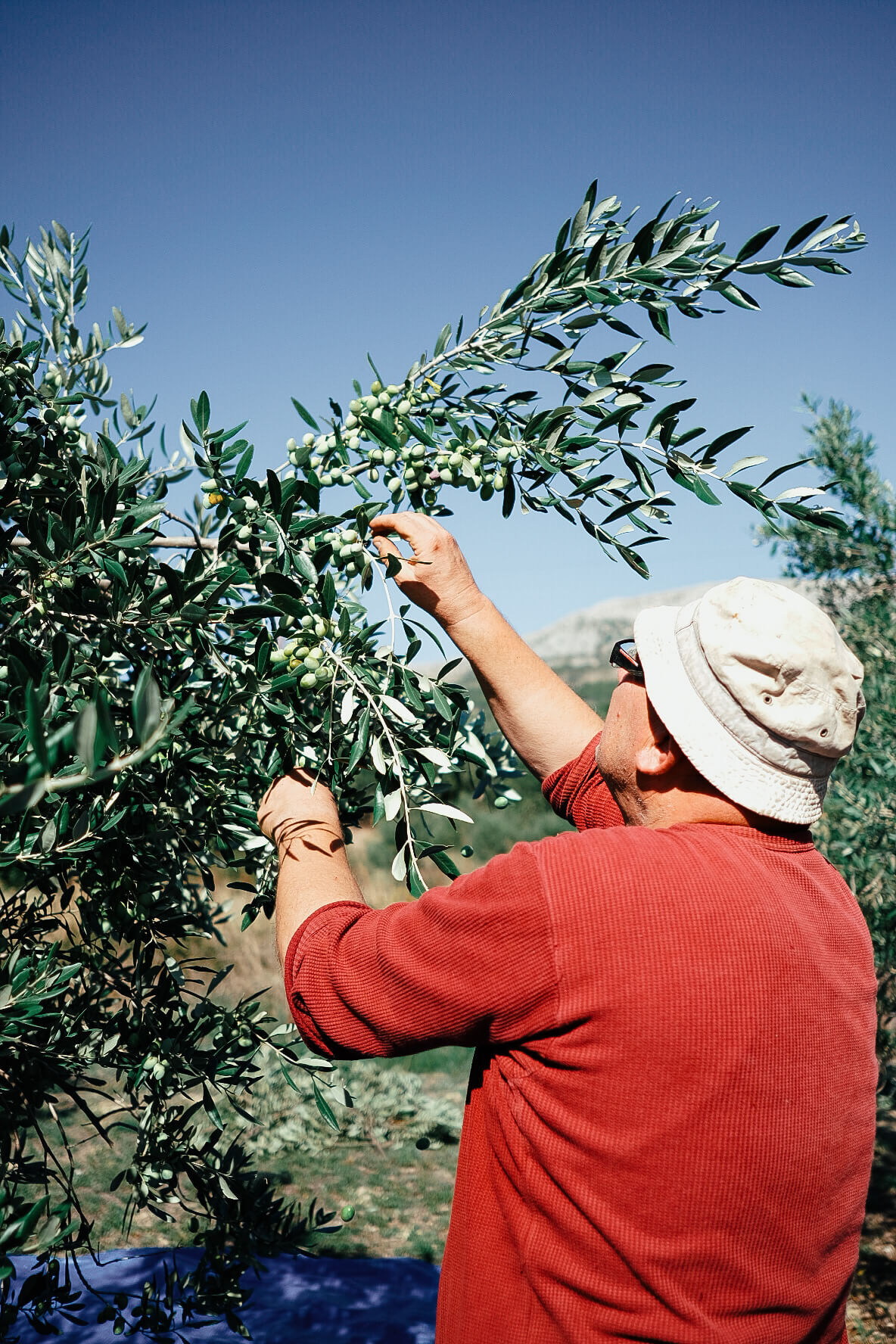
Olive oil, in particular, has always been one of the cornerstones in our kitchen at home, where my parents have always done wonders with its help. We were glad to know, when we moved, that in Croatia it was equal or even more important in their diet than in ours. It took us little time to recognize the high quality of Croatian olive oil. However, I was sad that after two years in Croatia and consuming its world-renowned olive oil, I felt so distant from the enormous process behind its production. I knew absolutely nothing about how olive oil is made, or about olive trees, or about olives. Nothing at all.
In Podstrana, where I live, I find myself surrounded by small fields of cultivation of apples, lemons, watermelons, cabbages, as well as olive trees. Throughout last year, especially at the end of the summer, I have noticed different people who come to take care of their crops, but few or no people in the olive trees. It was in October-November of 2020 that I saw people pick olives for the first time, and that's when I discovered that it was in fact the season. I felt like I had missed a huge opportunity (laziness and shyness won me over, not gonna lie) to get closer and learn more about olive picking. I decided that in the following season I would learn more about this tradition.
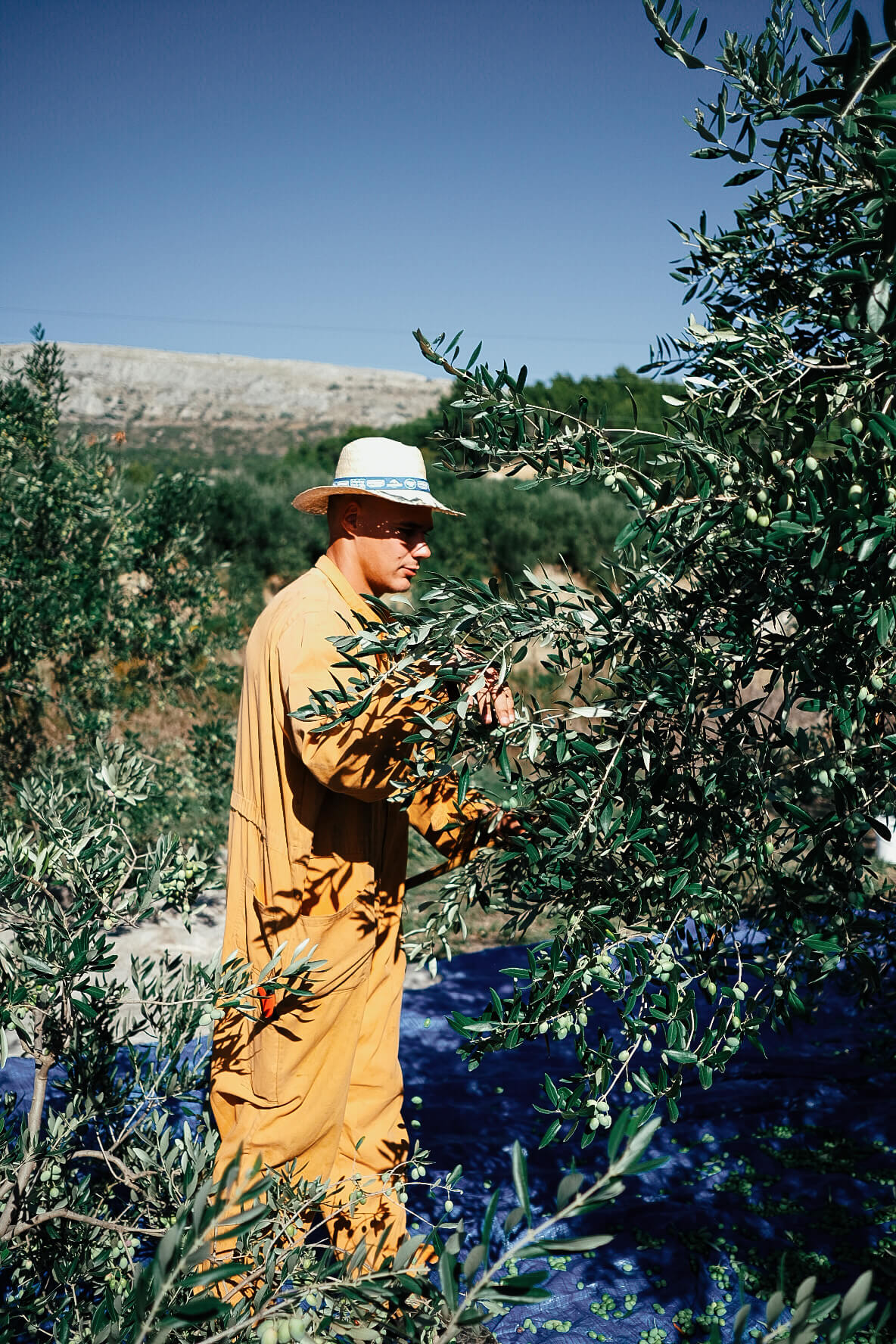
I patiently waited this year for October to arrive, and a few days ago I saw that they were picking olives in the distance. This time I did not hesitate, I took my camera and walked over to where they were. It was there that I met one of the kindest families from Podstrana. From the moment I introduced myself, I had never felt so well received by strangers, and they did not hesitate for a second to allow me to accompany them and document their work. For me, it was a great relief, since at some point I overthought that they would feel invaded by my presence both on their property, and in a time where they can share their privacy in a traditional family activity. But they didn't bother, and I think they were not only impressed and glad to hear me speak Croatian, but they may have been happy to see someone genuinely interested in learning more about olive picking.
The father, Jozo, dedicated almost three hours to telling me everything about his olive trees and olive oil, while he collected olives along with his wife and son. Jozo and his son Ivo educated me on the technique used to carefully extract olives from the trees, using a small plastic rake to ''brush'' the branches full of olives, as well as the high quality of these olives, called ''Levantin'', for the subsequent oil production process that would come later. The weather was perfect, as it felt like a summer day infiltrated in the fall, with a radiant sun that did not burn your skin. Still, the shadow of a twenty-year-old olive tree protected us. All you could hear was Jozo's endless but nourishing olive lessons, as well as these constantly falling like rain from the tree over the blue plastic carpet.
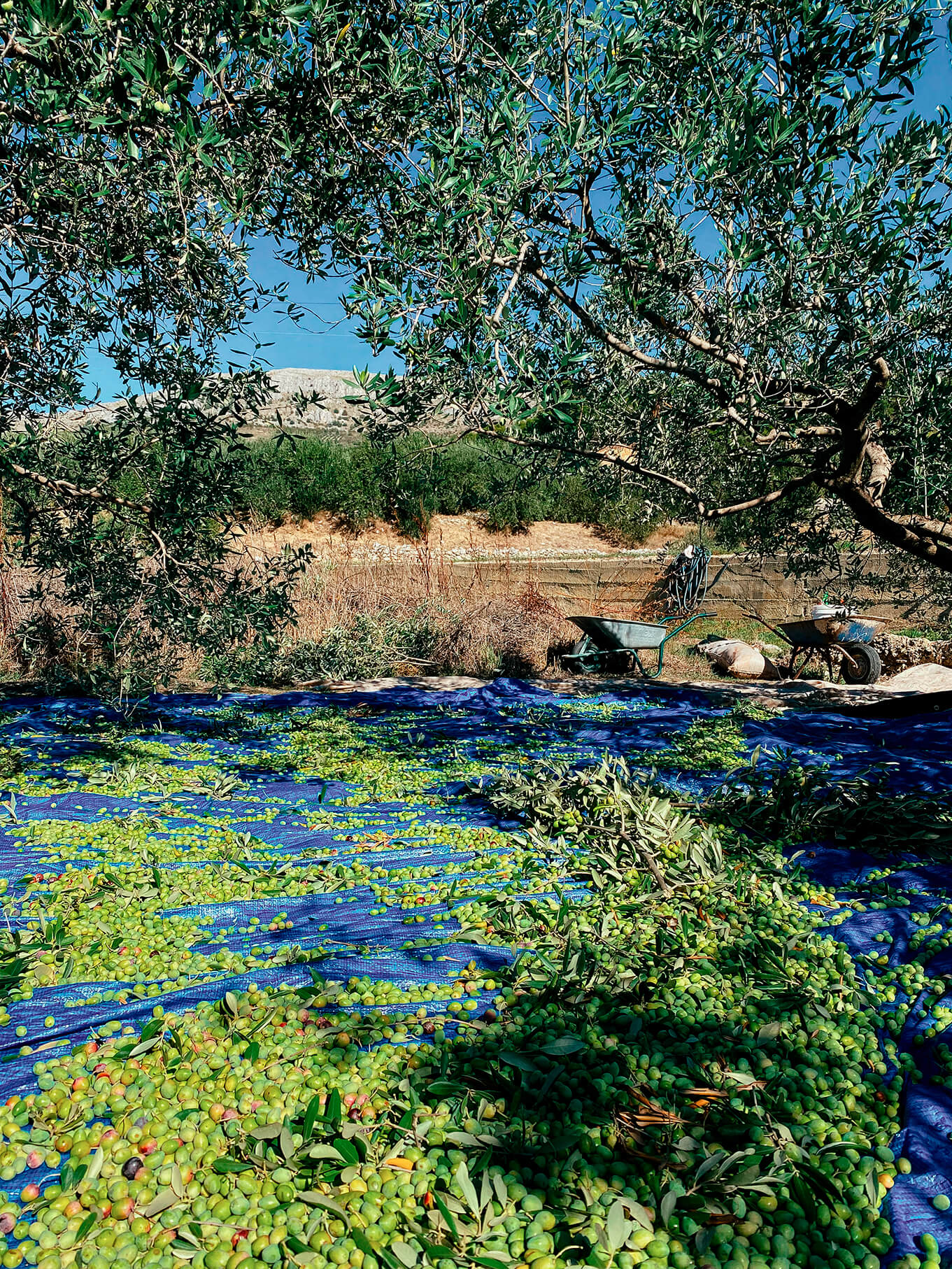
After three hours of a lot of learning and thousands of olives scattered on the ground, it was time to go and it was time for the family to collect all the olives in bags. It was a very fruitful afternoon for everyone, as I returned home with much more knowledge about olive picking as well as numerous photos and videos, and they returned home with almost 150 kilos of olives, from a single tree! According to Jozo himself, this particular year had been a very good one for his olive trees, and the gentle climate was key for them to produce so many olives.
Before I left, I exchanged phone numbers with Ivo, and it was there that I passed them the photos I had taken and, soon, a small short film that I will prepare about this particular experience of olive picking. They also promised me a bottle of their olive oil, which I look forward to trying soon.
It has been one of those (few) days and anecdotes in which I return home with a real smile, and that reminds me of how right my decision to come to Croatia was, and how close I am to being able to adapt to this beautiful country. If there is one thing I am sure of, it is that I will not be able to die in peace without at least one olive tree in my future home!
Here are some pictures I took from this wonderful day of olive picking in Podstrana:
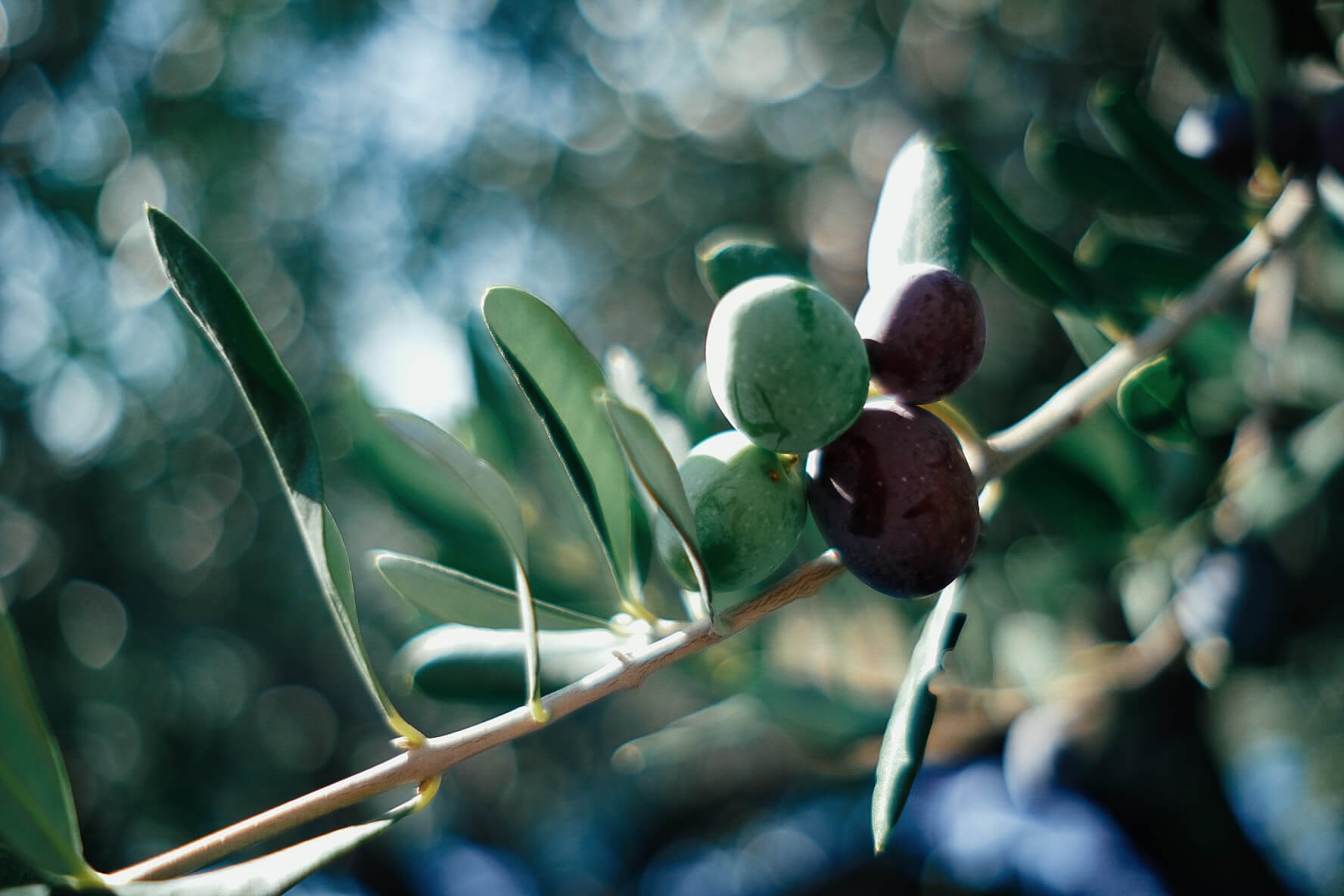
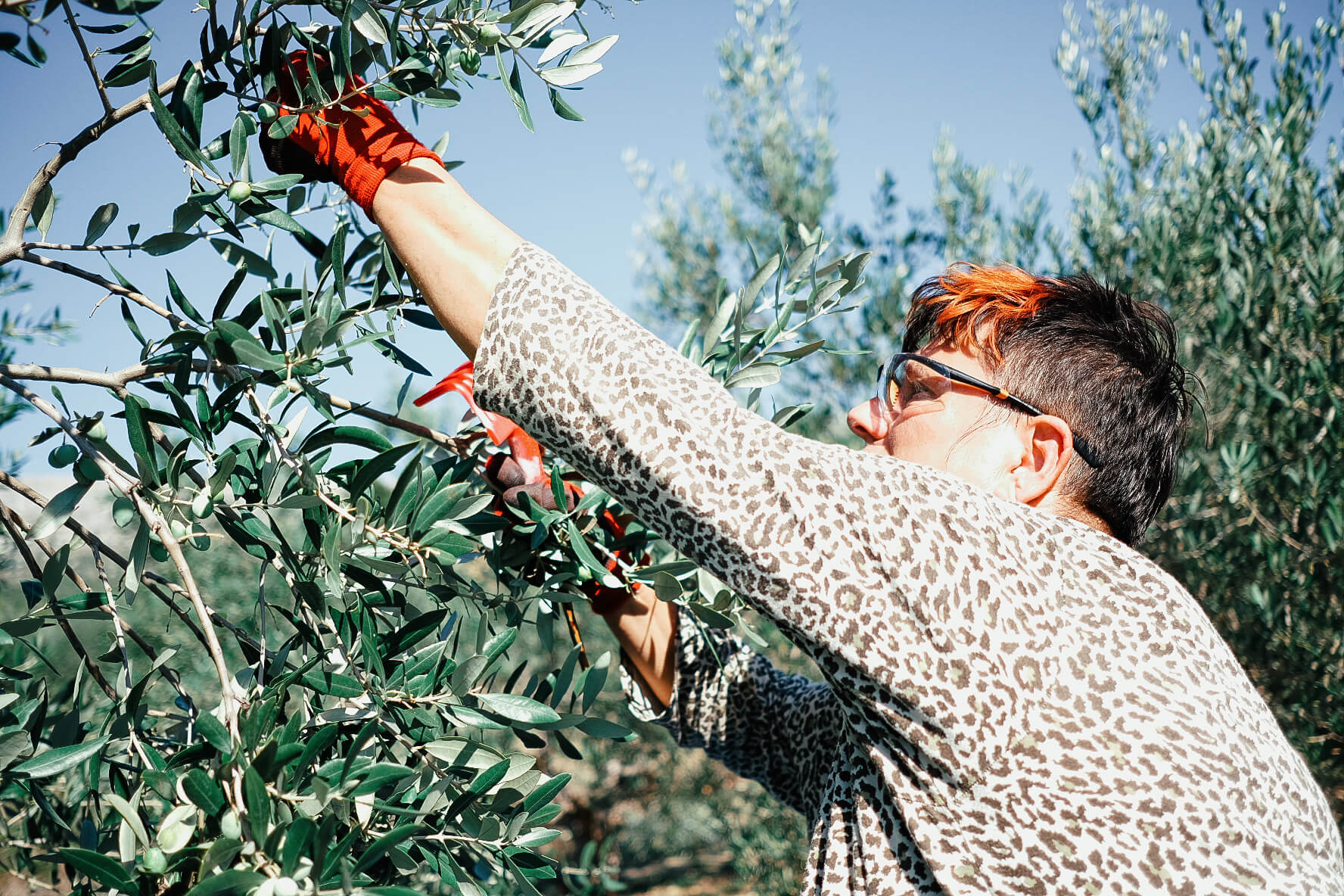
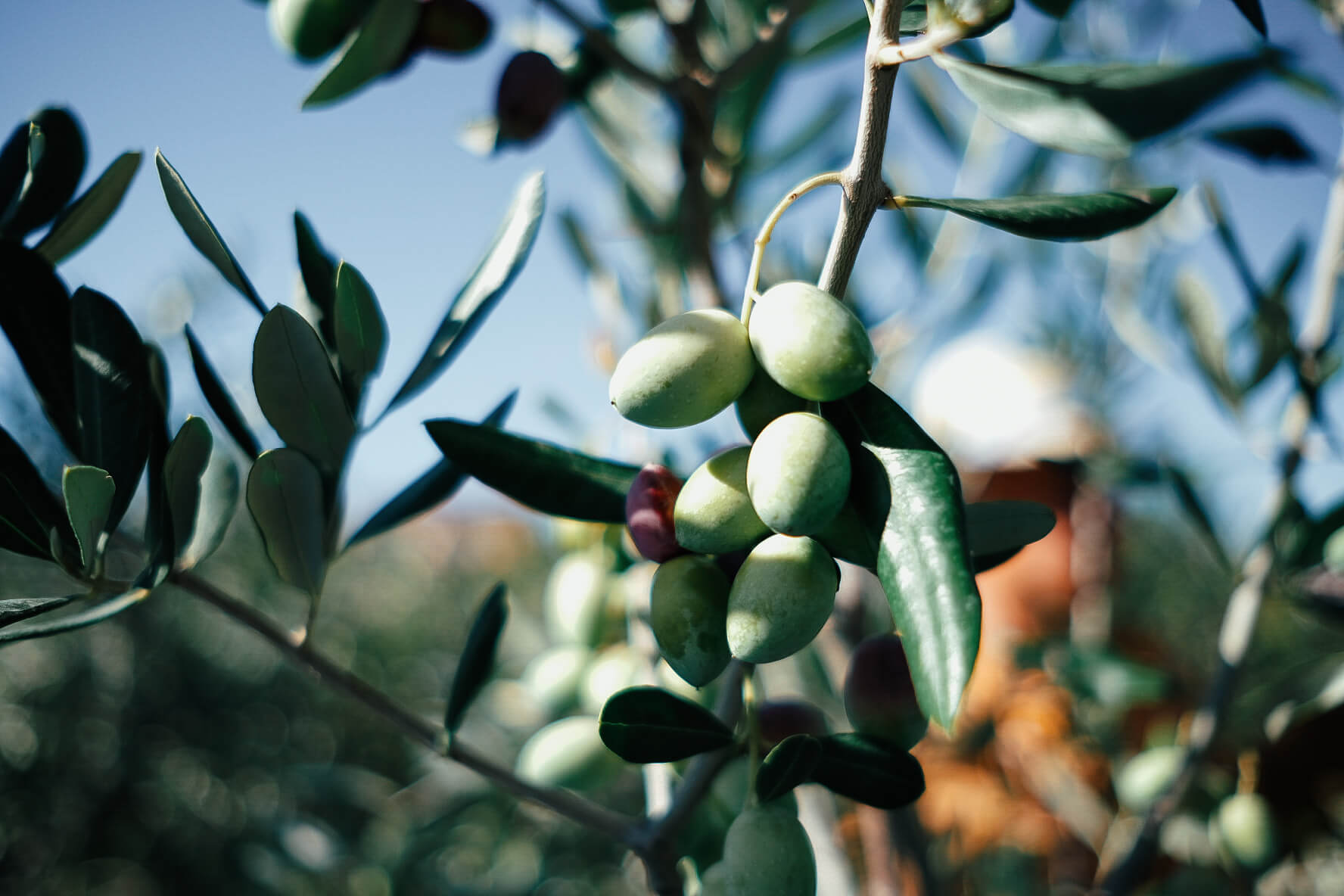
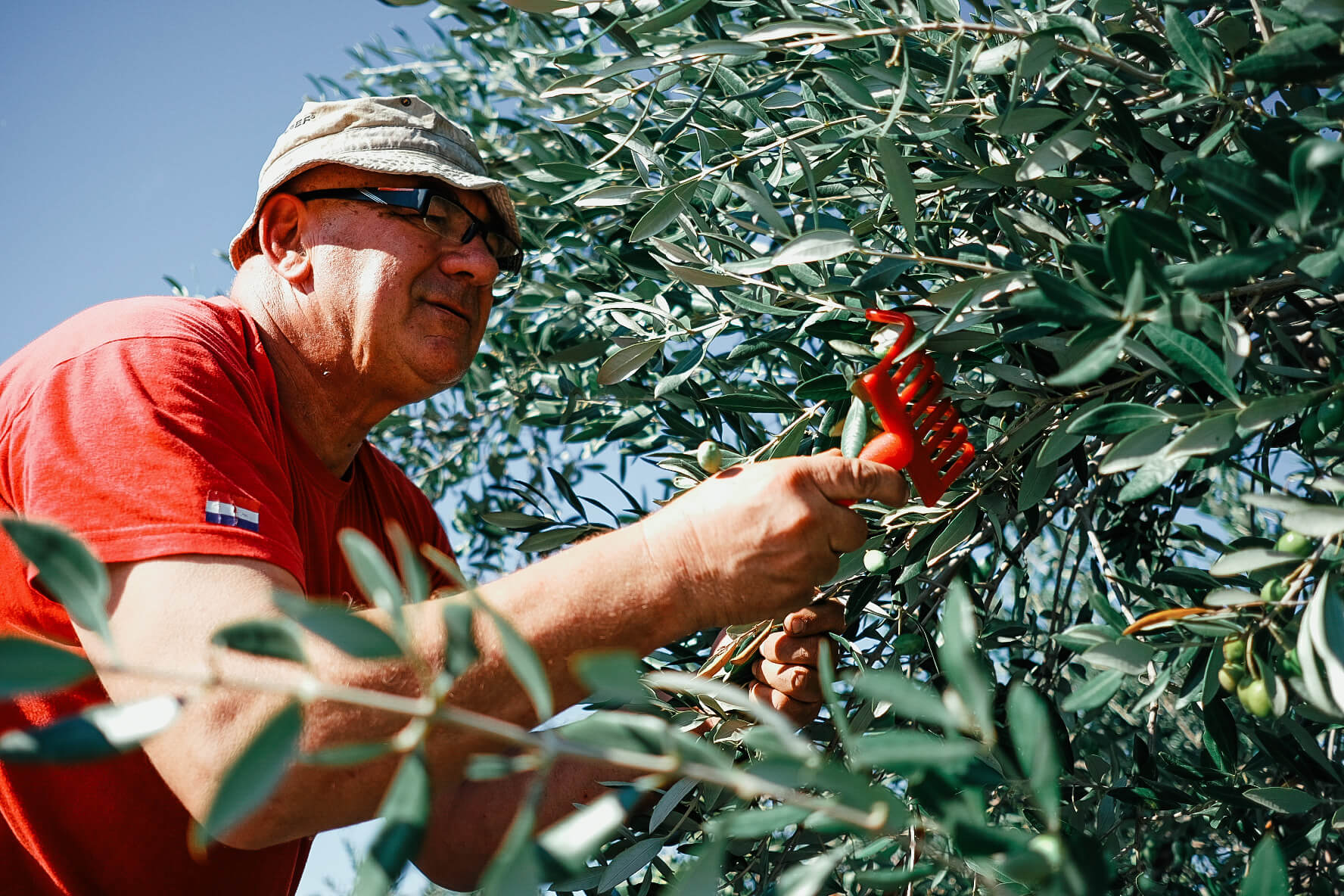
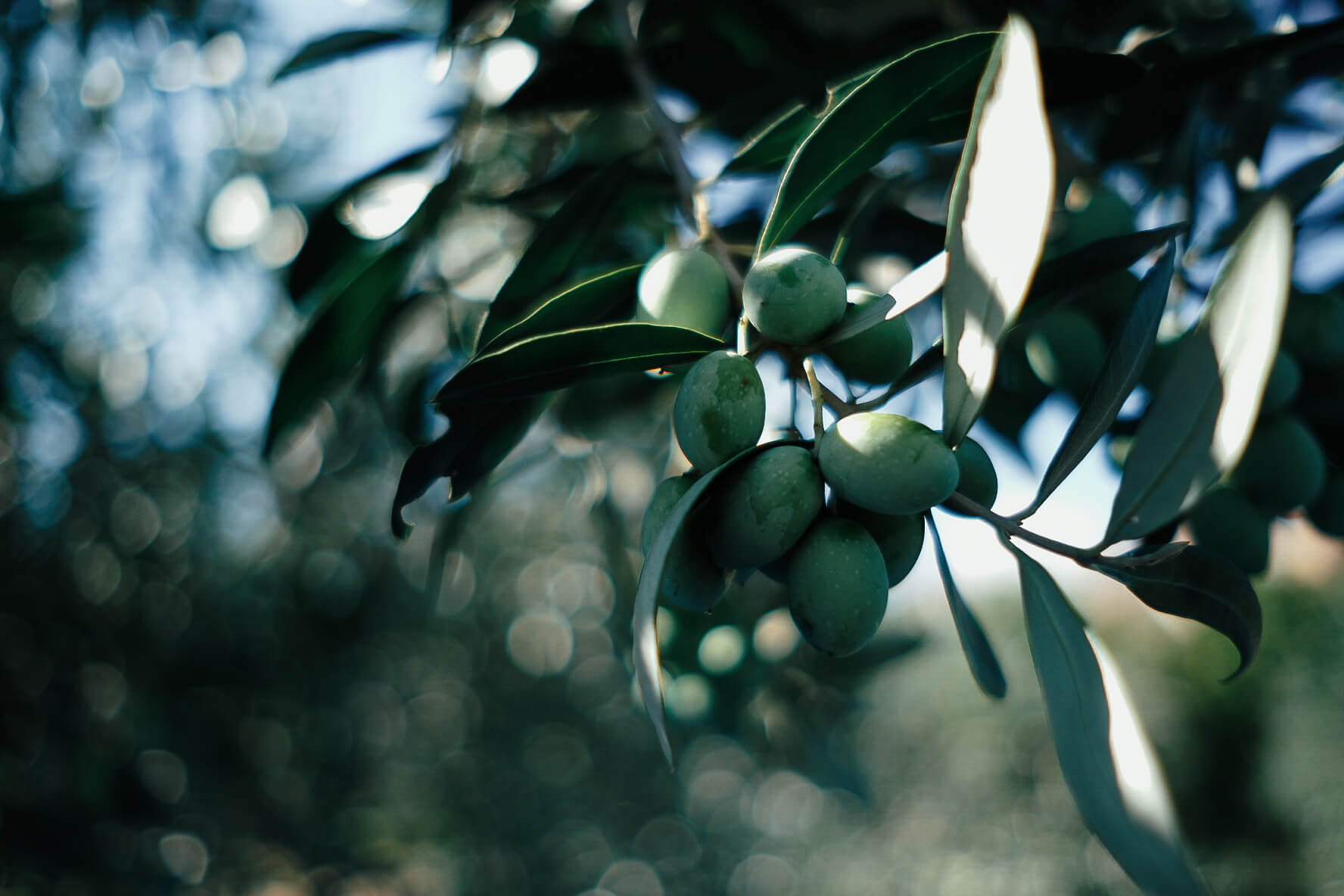
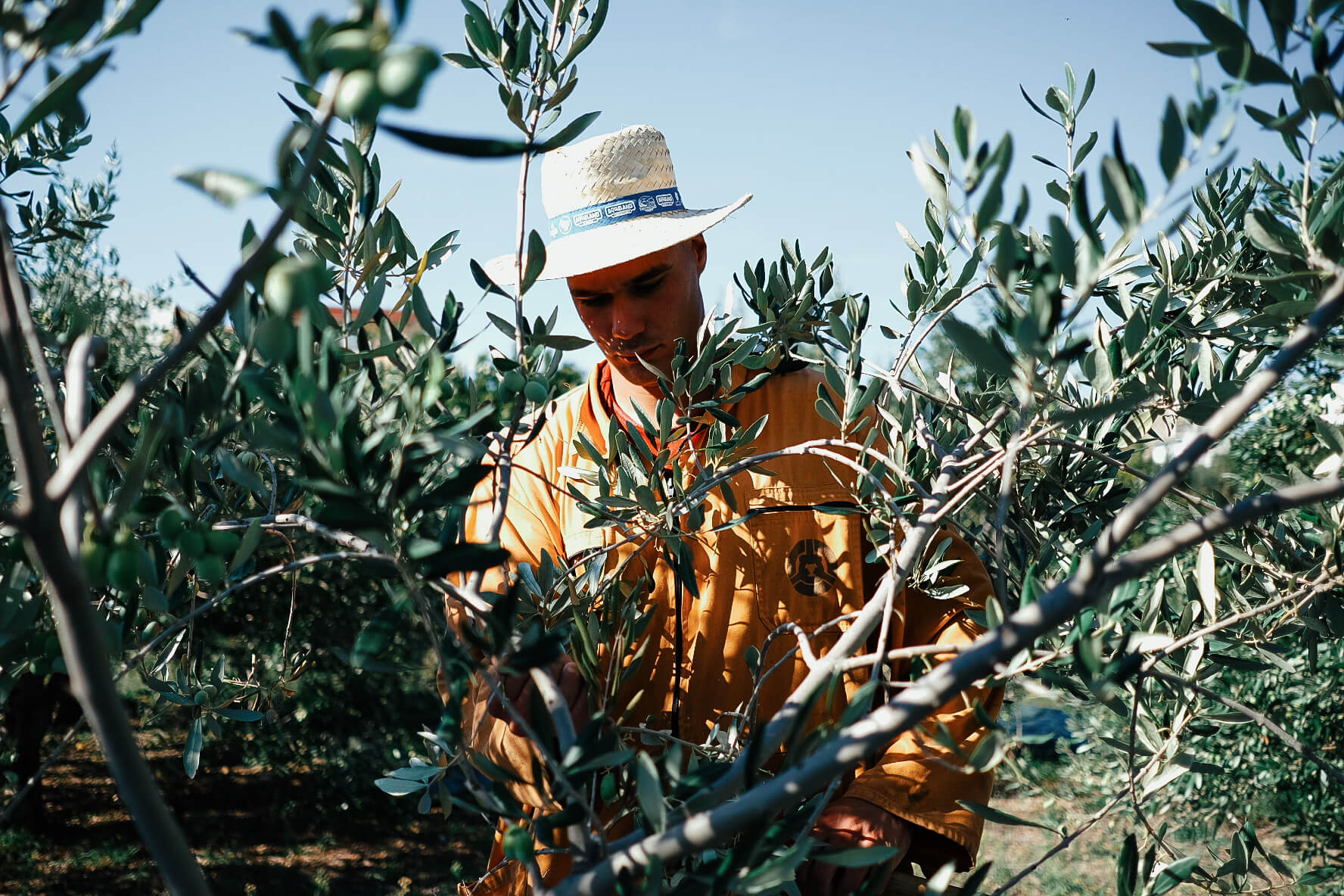
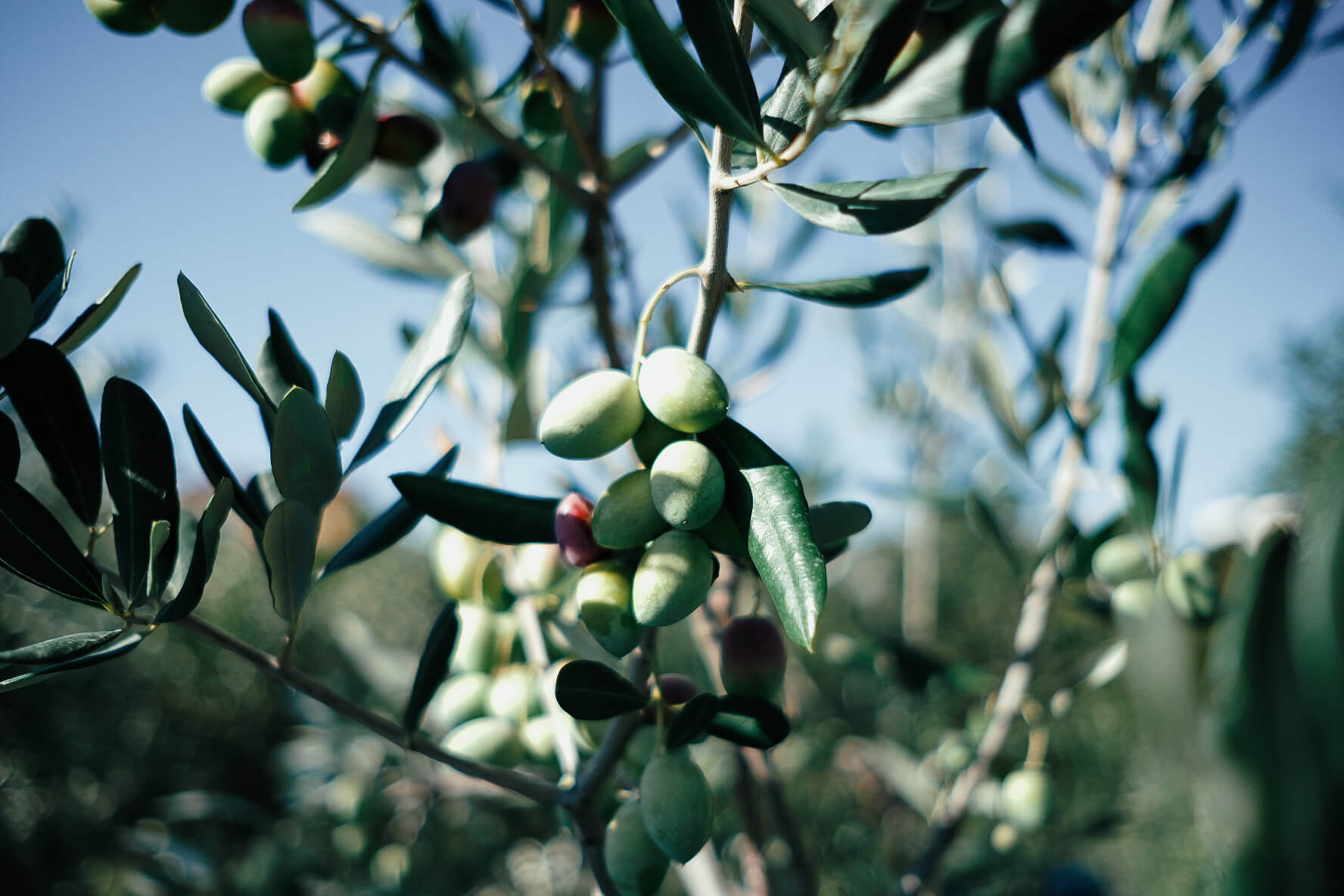
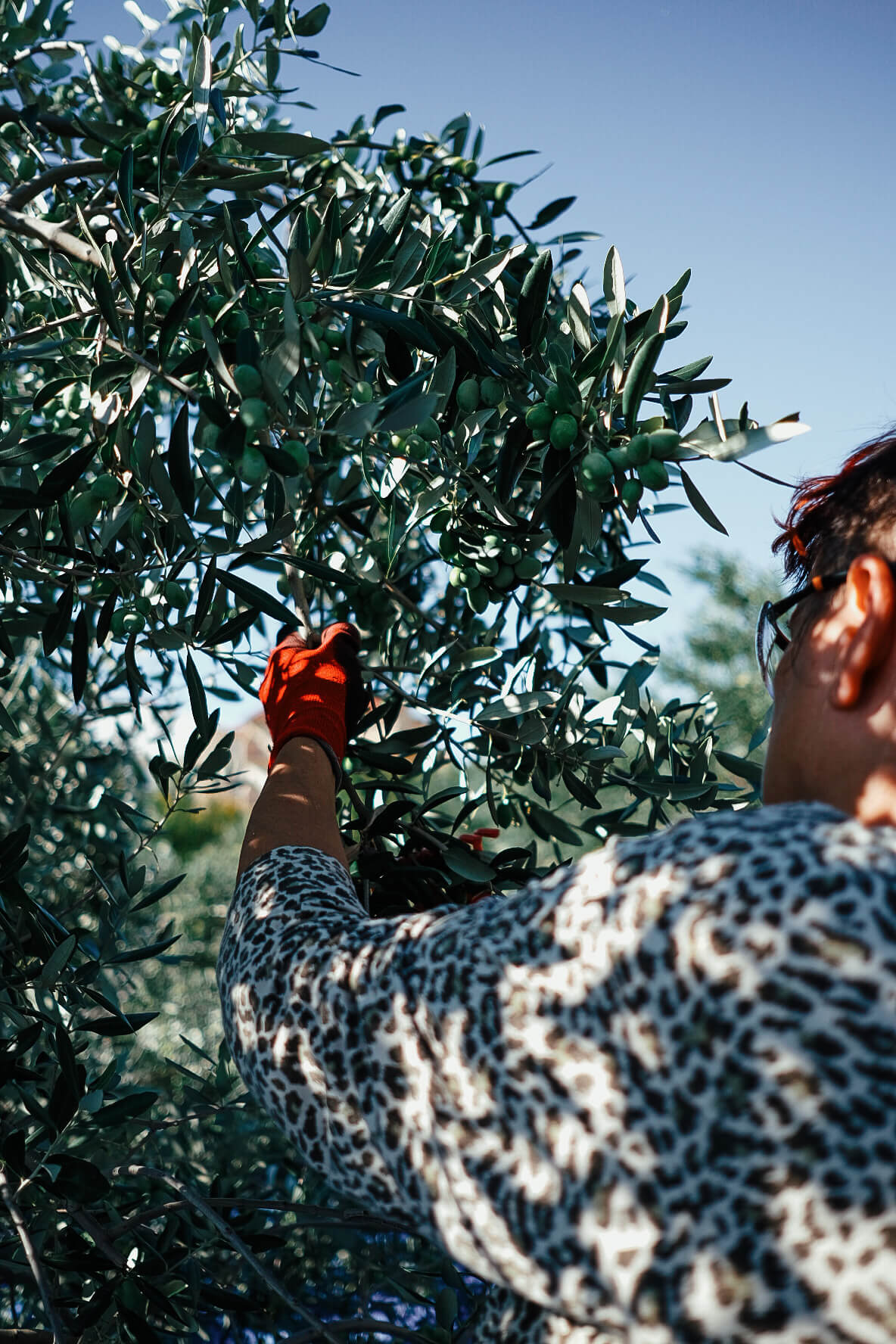
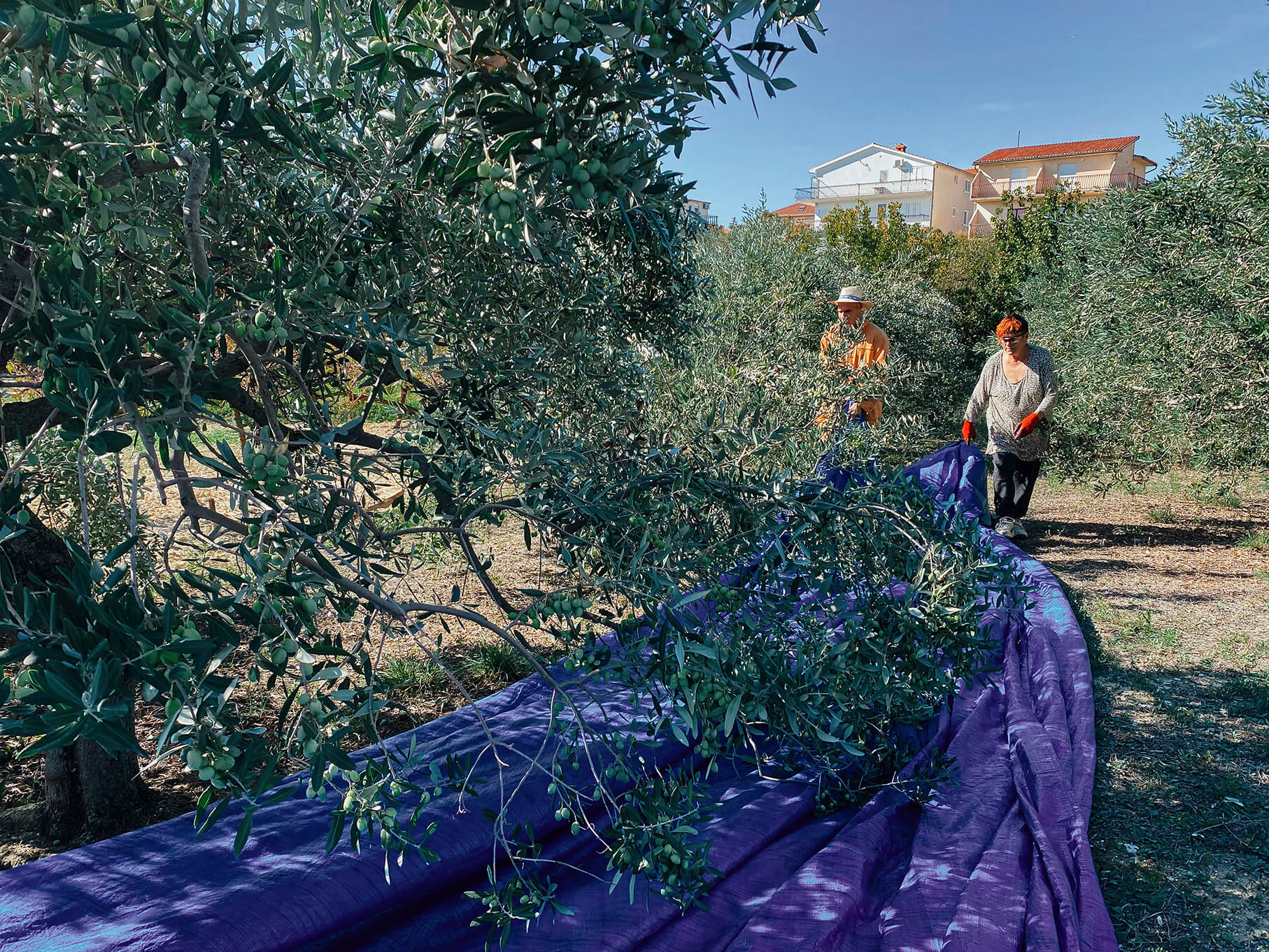
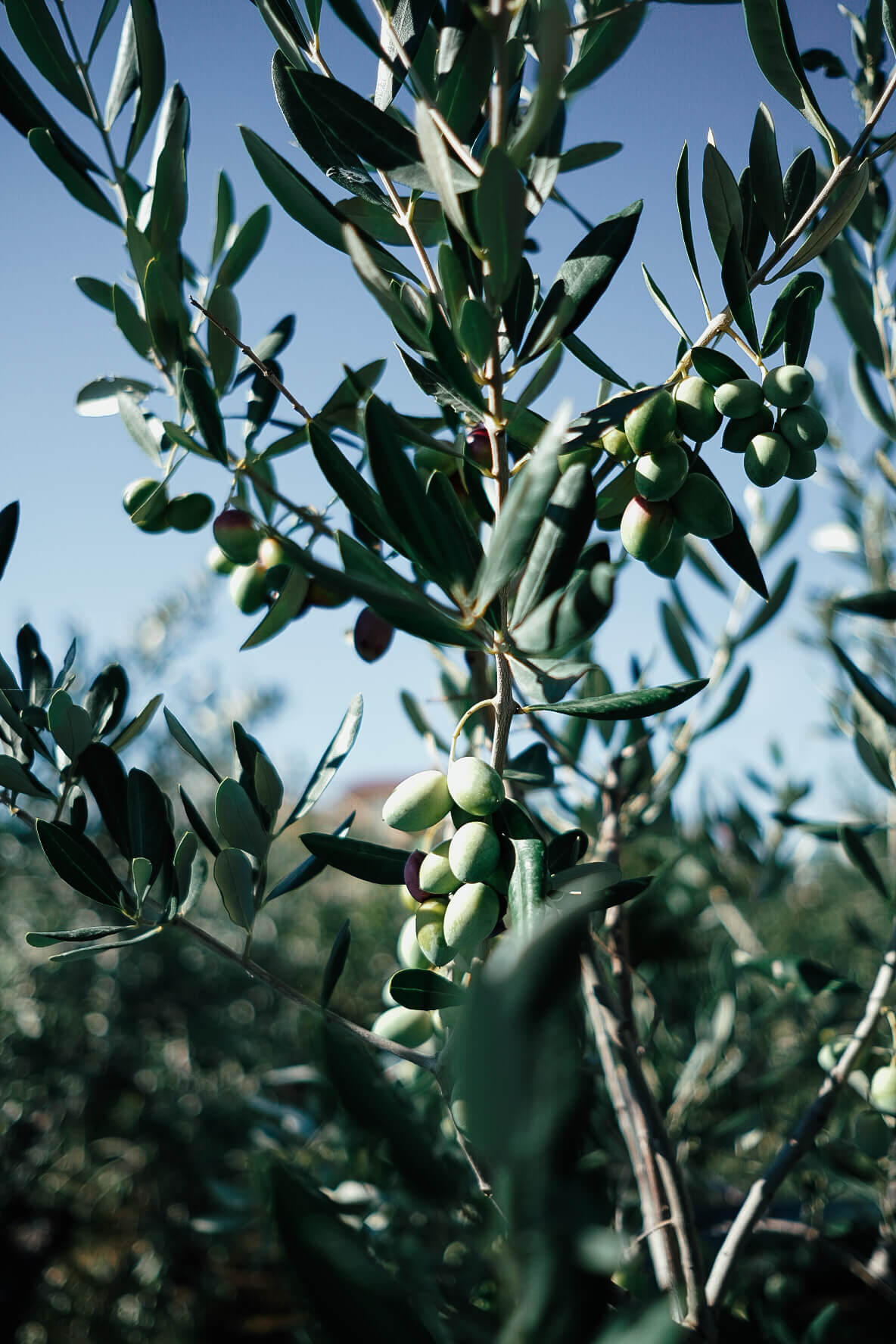
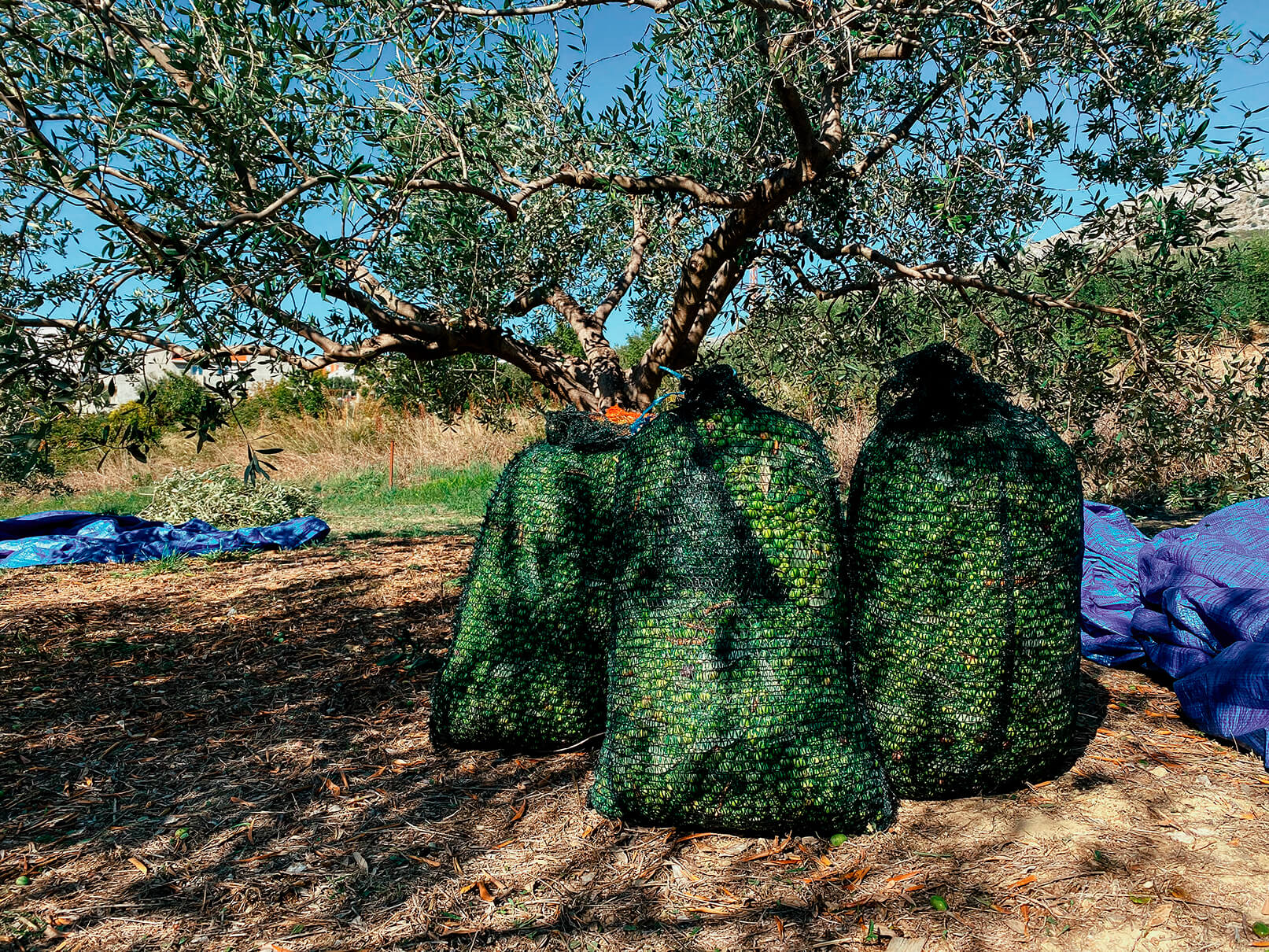
When it comes to olive oil, Croatia is one of the leading countries in the industry. From Istria to Dalmatia, you can find all the information you need to know about the origins, processes, and where to buy Croatian olive oil on the Total Croatia page, now in your language!
For more news like this, make sure to check out our dedicated lifestyle section.
European Commissioner Urges Croatians to Get Vaccinated
ZAGREB, 22 Oct 2021 - European Health and Food Safety Commissioner Stella Kyriakides visited a COVID-19 vaccination point in Zagreb on Friday with Health Minister Vili Beroš, telling Croatian citizens to get vaccinated and listen to scientists' messages, not messages on social media.
Get vaccinated to protect yourselves, your fellow citizens and so that hospitals are not full of patients again. That's a very clear message, based on science and the reality we know. Listen to scientists, not experts on social media, Kyriakides said.
We are not in the same situation as in 2020. Today we have a safe and effective vaccine which was approved for use in the EU. We have enough vaccines, but we must go forward. We don't want to have a pandemic of the unvaccinated, she added.
Croatia has vaccinated about 55% of its adult population against coronavirus. It must accelerate it because in the EU we have more than 75% of the population fully vaccinated. That's why it's necessary to accelerate vaccination as much as possible so that we don't have areas in the EU that are still unprotected, she said.
Minister Beroš commented on a letter by five members of the government's Scientific Council who distanced themselves from statements made by Council member Gordan Lauc.
He said that when members of a scientific forum individually commented on "expertly established facts" on social media, contrary to the forum's clearly stated views, such commenting "is damaging."
Beroš added that he said yesterday all he had to say about Lauc and the Council and that, as far as he knew, most Council members wanted to continue to be part in it.
They don't intend to leave the Council as that would send a bad message of inconsistency, he added.
For more on politics, CLICK HERE.
Kyriakides Visits Zagreb Children's Hospital's Oncology Institute
ZAGREB, 22 Oct 2021 - European Health and Food Safety Commissioner Stella Kyriakides and Croatian Health Minister Vili Beroš on Friday visited the Zagreb Children's Hospital's hematology and oncology institute.
October is Breast Cancer Awareness Month and Kyriakides, who recovered from it, wore a ribbon-shaped silver brooch.
According to the European Cancer Organisation, almost a million cancer cases have not been diagnosed because of the pandemic. Last year 2.7 million patients were diagnosed in the EU and 1.3 million have died, including more than 2,000 young ones.
Kyriakides said Europe's Beating Cancer Plan envisaged €4 billion for fighting cancer, including €1.25 billion from the EU4Health programme for prevention, screening, diagnosis, treatment and improving the quality of life of people who have recovered from cancer.
Late last year Croatia adopted a national strategic framework against cancer. Oncology was included in the National Recovery and Resilience Plan.
For more news, CLICK HERE.
Beyond the Walls: DN-i-R Presents Sustainable Dubrovnik Tourism Direction
October 22, 2021 - Sustainable Dubrovnik tourism was the topic at a workshop in Lazareti today, as the Dubrovnik Digital Nomads-in-Residence case study was presented, along with the city announcing co-working spaces, a co-living space, and the Dubrovnik Digital Nomad card.
It has been quite a journey.
And we are still only at the beginning.
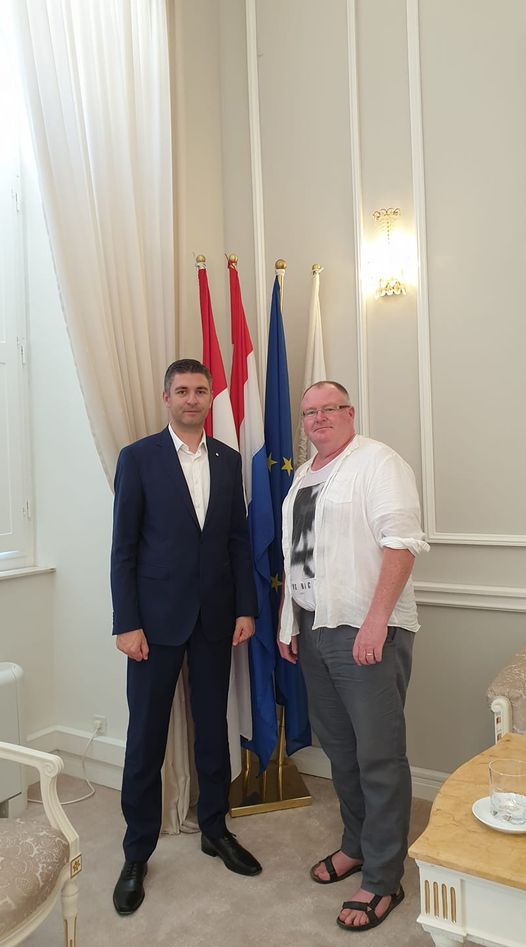
It is just 15 months since the Mayor of Dubrovnik, Mato Frankovic, gave me 30 minutes of his time to hear some ideas we had regarding sustainable Dubrovnik tourism. Half an hour later, we had an agreement to cooperate, and work started the next morning with Deputy Mayor, Jelka Tepsic, and Dubrovnik Tourist Board director, Ana Hrnic.
Despite the considerable restrictions caused by the pandemic, progress has been swift. In October last year, the first-ever digital nomad conference, Dubrovnik for Digital Nomads, was held in Dubrovnik. It was a cooperation between the city of Dubrovnik, Dubrovnik Tourist Board, Saltwater Nomads, and Total Croatia News.
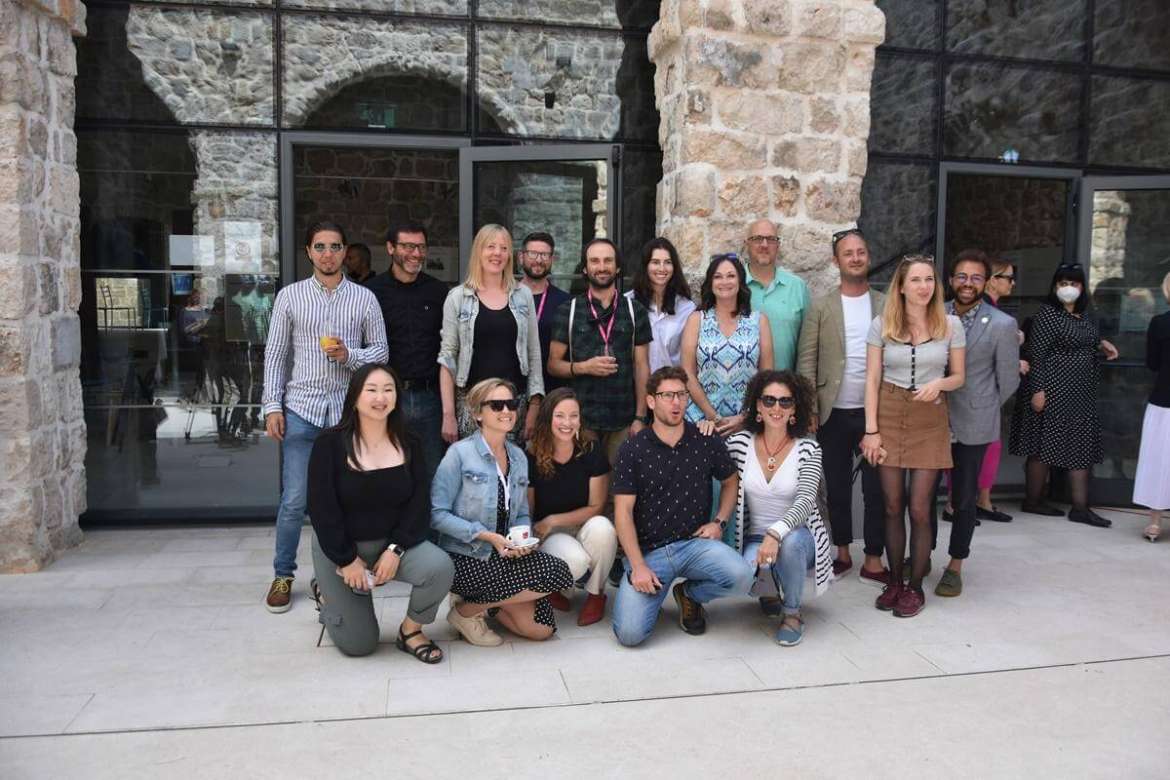
It was followed by the Dubrovnik Digital Nomads-in-Residence program, the first event of its kind in the world, where 10 international nomads from different backgrounds and experiences, came to the city for 4 weeks to work with the city, tourist board, and community to co-create a strategy to help Dubrovnik develop its digital nomad strategy to attract more remote workers.
The DN-i-R project achieved international recognition at the recent Conventa 2021 awards in Ljubljana, as well as being presented at the recent Cross Border Coworking Conference in Budva as an example of regional best practice.
At today's event '1 Year On, Dubrovnik for Digital Nomads Workshop' (so-called as it a year since that inaugural conference), Saltwater Nomads CEO and architect of the DN-i-R program, Tanja Polegubic, presented the case study of the findings of DN-i-R. Deputy Mayor Tepsic and Director Hrnic also presented their impressions, with DN-i-R facilitator extraordinaire Erin Maxwell also on stage.

The case study outlined a strategy to success for the project created by the DN-i-Rs, with some very early quick wins to help Dubrovnik on that journey.
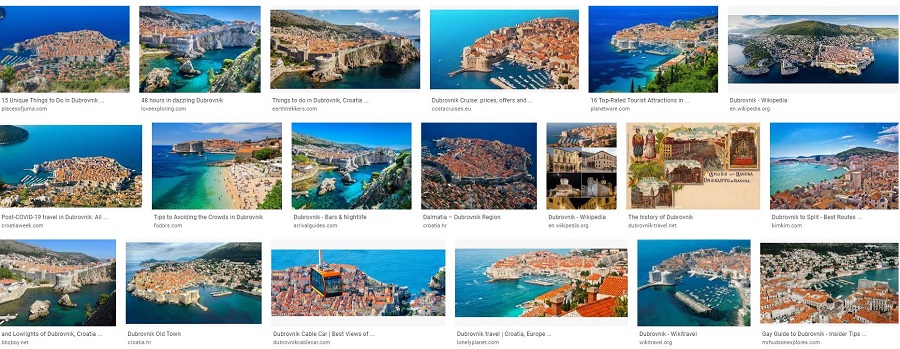
The image and perception of Dubrovnik as a one-dimensional destination with only enough content for 2-3 days was evident at the presentation of the DN-i-R initial findings at a press conference back in May. A simple Google image search of Dubrovnik provided the same results - a spectacular and historic old town, but nothing more. And one of the key findings of the strength and potential of Dubrovnik's tourism was what lay 'Beyond the Walls'. Far from being a 2-3 day destination, find out why these 10 DN-i-Rs concluded that 30 days was not enough to spend in Dubrovnik.
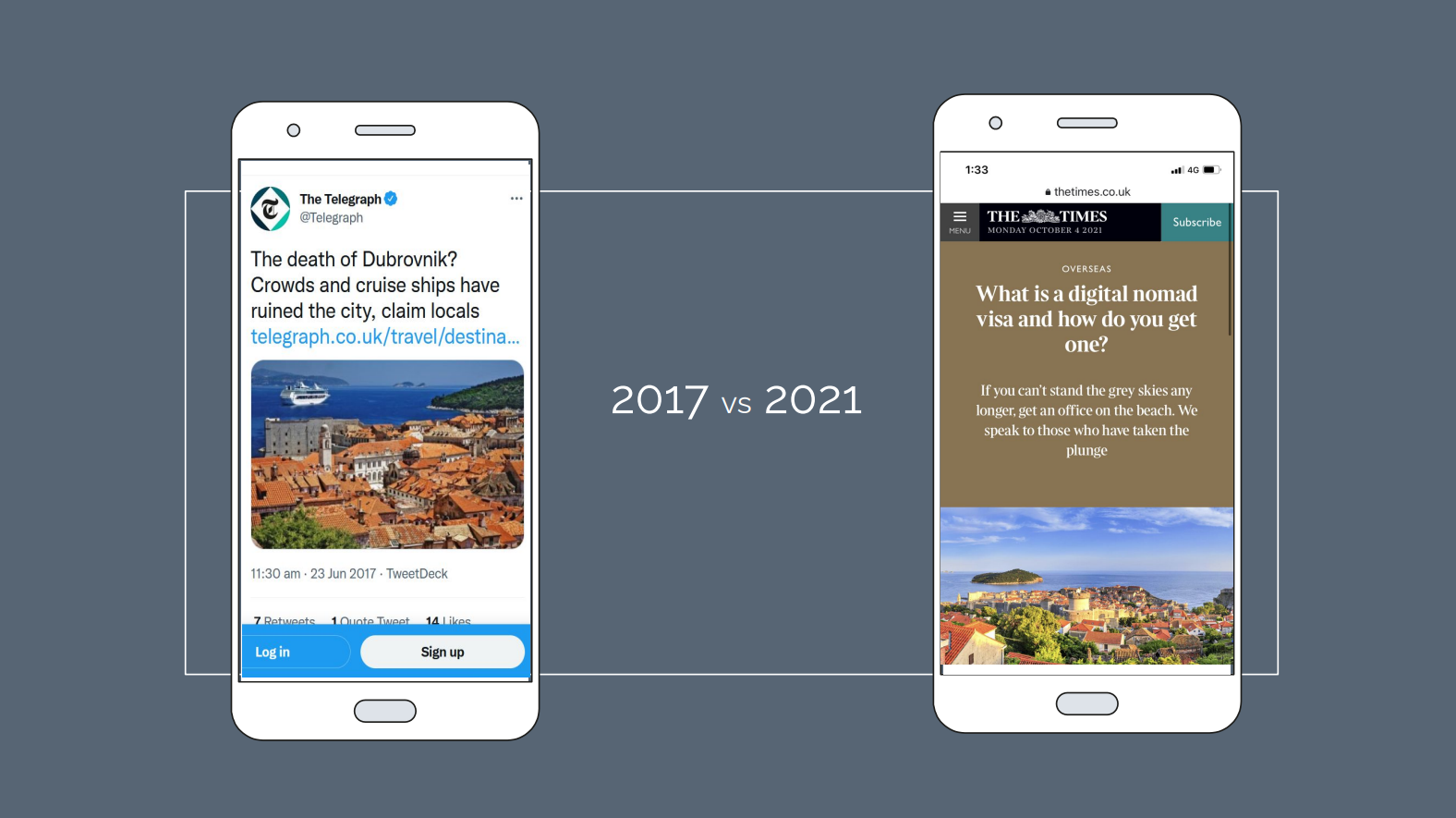
Changing the perception of Dubrovnik is going to take time after the horror years of overtourism prior to the pandemic, but the image (and a real image) of a more sustainable Dubrovnik is already taking hold. Few newspaper editors would have chosen Dubrovnik for the lead photo for an article about digital nomads a year ago, as The Times did recently, for example - in stark contrast to the Death of Dubrovnik headlines in the UK media just 4 years ago.
Leading DN website NomadList is one of the biggest online resources for DN opinions and statistics. The recent 2021 survey was extremely good news, with Croatia named as the 2nd most liked destination after Japan. Data extrapolated from the Trends, based on real geographical data of users of the site showed that nomads were visiting Croatia - including Dubrovnik - in ever greater numbers.
The DN-i-R program can only achieve so much on its own, and it would have had limited success had its recommendations not been implemented. Too often in Croatian tourism, projects finish, a box is ticked, perhaps the right person has been thanked for a favour by being awarded a project. For Dubrovnik's Dn journey to continue, it is essential that the city maintains the momentum, builds the nomad community, and engages the local community.
And not only did Dubrovnik rise to the challenge with their announcements today, but they exceeded my expectations. Among the things Ana Hrnic announced:
- The opening of no less than 3 coworking spaces, at strategic parts of the city - Lazareti by the old town, the Red History Museum in Gruz, and Sunset Beach in Lapad.
- The first co-living space in Dubrovnik.
- A new planned information website for Dubrovnik, with its own visual identity, dedicated to longer-stay visitors.
- A check-in point for DNs at the main tourist board office at Pile Gate by the old town.
- A Dubrovnik Digital Nomad Card.
The Dubrovnik digital nomad card, believed to be the first of its kind in the world, will be launched soon, offering discounts for nomads from participating businesses. As TCN recently reported, the city recently invited businesses to provide special offers for digital nomads staying for an extended period. So far, 17 businesses have joined the programme, with more expected to follow.
Deputy Mayor Tepsic also stressed the importance of involving and educating the community, with plans to hold monthly hybrid workshops to help Dubrovnik's tourism businesses better understand and adapt to the DN opportunity.
Participation of the local community and local authorities will be crucial for the success of the initiative, and the facilitators of DN-i-R have been extremely impressed at the high level of engagement from the local community. This was in evidence once more today, as community members from the adventure tourism, restaurant, and private accommodation businesses explained how they were adapting their offers to welcome digital moments. Continued education, encouragement and information will only bring out more such offers.
There is a long way to go, but Dubrovnik is demonstrating once again its willingness to take the lead in an attempt to build a more sustainable Dubrovnik tourism model.
For more news and features on digital nomads in Croatia, follow the dedicated TCN section.
Krapina Neanderthal Museum Wins European Cultural Tourism Network Award
ZAGREB, 22 Oct 2021 - The Krapina Neanderthal Museum and Hušnjakovo site have been awarded the prestigious European Cultural Tourism Network (ECTN) Award 2021 in the category for Archaeological Sites and Museums as Cultural Tourism Attractions, the Ministry of Culture and Media reported on Friday.
The museum won the award thanks to the excellent modern presentation of its pre-historic, archaeological and anthropological topics, and in particular, because it has the status of an unavoidable cultural-tourism destination in Europe with more than 100,000 visitors a year from around the globe, the ministry said in a press release.
The reasoning for the award notes the creative methods of working with children and young people and cooperation with the local community, where the museum is the generator of the main cultural events and an example of good practice of sustainable cultural tourism in the area.
Thanks to this award the museum has confirmed its European dimension and recognisability. This is proof that the culture of the Krapina Neanderthal has become a brand of global proportions, the ministry said.
Other finalists in the same category included the Nerezinac Lugger – sailing interpretation centre of the maritime heritage of the island of Lošinj and the Zenica City Museum in Bosnia and Herzegovina.
Two other Croatian museums were among ECTN finalists in other categories - Rab Archaeological (T)races and the Museum of Chocolate in Zagreb.
ECTN is a pan-European network of destinations, authorities, NGOs and research institutes for Sustainable Cultural Tourism development and promotion across Europe.
For more on travel, CLICK HERE.
PM: Decision Making on Croatia's Schengen Bid Going According to Plan
ZAGREB, 22 Oct (Hina) - Prime Minister Andrej Plenković said in Brussels on Friday he expected the decision making process on Croatia's accession to the Schengen area to proceed according to plan.
"I have discussed this matter at all levels, with all governments. I think the momentum is slowly gathering for a decision at the level of the Council of the EU," Plenković told reporters on arrival for the continuation of the two-day EU summit.
Plenković said that ongoing talks during the Slovenian EU presidency and the next French presidency would be "crucial for achieving Croatia's strategic goal - to become a member of the Schengen area."
Among the topics to be discussed at the summit will be protection of the EU's external borders against illegal migration.
Plenković said that also discussed would be several action plans with non-EU countries, including Bosnia and Herzegovina, to help them improve migration management.
He said that during discussion on foreign policy matters on Thursday evening he had drawn attention to the situation in Bosnia and Herzegovina, notably to the existing tension and statements by the Serb member of the state presidency, Milorad Dodik, which destabilise the country.
"Croatia supports a single Bosnia and Herzegovina, its independence, sovereignty and good functioning. I also made it clear that the EU should help, together with our partners, first of all the United States, to achieve a timely agreement on electoral legislation so that at next year's elections the Croats, as one of the three constituent peoples, can be legitimately and equally represented in the institutions of Bosnia and Herzegovina," Plenković said.
He said he was pleased with the quality of the discussion on this matter, adding that several leaders had taken part in it.
For more on politics, CLICK HERE.
Croatia Reports More Than 3,000 New COVID-19 Cases for Third Consecutive Day
ZAGREB, 22 Oct 2021 - In the past 24 hours Croatia has registered 3,258 coronavirus cases and 17 related deaths, the national COVID-19 crisis management team said on Friday.
Such a high number of new infections was last reported in April.
There are 15,300 active cases, including 997 hospitalised patients, of whom 135 are on ventilators, while 25,359 persons are self-isolating.
Croatia has registered 439,447 coronavirus cases to date as well as 8,985 COVID deaths and 415,162 recoveries, including 1,658 in the past 24 hours, while 3,014,840 persons have been tested for the virus, with 10,309 in the past 24 hours.
To date 46.37% of the population has been vaccinated, including 55.57% of adults, of whom 52.31% fully.
For more news, CLICK HERE.
Papuk Nature Park Will Have Two New Instructional Trails Until Spring
October 22, 2021 - In the heart of the Papuk Nature Park, 475 meters above sea level, is located the jewel of the Slavonia mountains: Jankovac, where its visitors can now enjoy two new educational trails.
By the end of September this year, the Jankovac Forest Park was visited by almost 50,000 visitors, and will soon be richer for two more educational trails, reports HrTurizam. These are two projects co-financed entirely by the European Union from the European Agricultural Fund for Rural Development, approved by the Agency for Payments in Agriculture, Fisheries and Rural Development, and refers to the type of operation 8.5.2. "Establishment and arrangement of educational trails, lookouts and other smaller infrastructure".
In one of the projects, the investment is focused on the establishment of an educational bike path with educational and recreational elements in the area of Slatinski Drenovac. Existing forest trains and six-kilometer-long roads will be used for tracing, so the vast majority of the trail passes right through the forest area. The educational trail will connect the Jankovac Forest Park and the Slatinski Drenovac settlement, in which the Papuk Nature Park Public Institution plans to invest in the future Visitor Reception Center. The youngest ones were also meant because a playground will be built in front of the mentioned center as part of the mentioned project. The total value of the project is HRK 743,480, and work is expected to begin next spring.
The second project carried out by the Municipality of Čačinci, and refers to the continuation of investments in the area of the Municipality and the Park, is a new section of the educational trail with a total length of four kilometers. The trail starts from the Jankovac mountaineering picnic area and continues on a slight slope to the canyon of the Kovačica stream and along with it at the foot of the old Klak fortress. The trail passes completely through the forest area and will interpret the context of the rich history of the Jankovac area and the Klak fortress, which was determined by the richness of the forests and the natural resources of Papuk.
The educational trail will longitudinally connect two existing facilities - the Jankovac picnic area with the nearby cultural and historical site of the Klak fortress, ie with Slatinski Drenovac. The total value of the project is HRK 743,342.75. The start of work on the tracks is expected in the spring of 2022, so the relief of Jankovac in terms of cars is expected as early as next summer.
"Jankovac Forest Park attracts more and more visitors every year, and judging by the number of visitors during this year's winter months, Papuk has become the most visited winter destination. Therefore, the Municipality of Čačinci and the Papuk Nature Park did not want to miss the opportunity to invest in the tourist infrastructure of Papuk. I am especially happy to announce an investment worth almost one and a half million kuna, which will make the Jankovac Forest Park even more attractive to cyclists and pedestrians. With their length and characteristics, the trails are suitable for all ages, so they will be ideal for family walks ", said Alen Jurenac, director of the Papuk Nature Park and mayor of Čačinci.
Check our full guide on all Croatian National and Nature Parks HERE.
For more on travel in Croatia, follow TCN's dedicated page.
Five Scientific Council Members Distance Themselves from Statements by Gordan Lauc
ZAGREB, 22 Oct 2021 - Five members of the government's Scientific Council on Friday distanced themselves from all statements made by Council member Gordan Lauc about the coronavirus pandemic, notably his latest messages that the pandemic is over and that only elderly people should get vaccinated.
"We fully distance ourselves from all statements about the pandemic made by Gordan Lauc since the summer of 2020," says the declaration signed by Andreja Ambriović Ristov, Petra Klepac, Branko Kolarić and academicians Nenad Ban and Igor Rudan.
They in particular distanced themselves from Lauc's messages in which he declared the pandemic over or claimed that there are circumstances in which it is better to get infected. Lauc downplays the effectiveness of the epidemiological measures and the need for their application, recommends vaccination only for persons above a certain age and insinuates a connection between the increased mortality rate in Croatia and vaccination, they said.
"Anyone who says that any one of us could agree with Gordan Lauc's statements about the pandemic is not telling the truth," the signatories said.
The five members of the Scientific Council said that "their views on the pandemic are based on the existing knowledge from relevant professions and constantly evolving scientific knowledge, which often requires changes and adjustments of the COVID-19 response strategy, which then need to be explained to the public."
"That is why a responsible interpretation of scientifically accepted knowledge is essential at any time during the pandemic in order to keep the public properly informed and to protect human lives and maintain the economic activity of Croatian citizens as much as possible," the declaration says.
Speaking in an interview with N1 television of his statement that the existing vaccines poorly protect against COVID-19, Lauc said that vaccination is not a mechanism to stop the spread of the virus, but that the vaccine provides excellent protection against serious forms of the virus. He said that he is a scientist whom the government has asked for an opinion, but that he is not a government employee and need not obey the government.
For more on politics, CLICK HERE.
Croatia Marking International Stuttering Awareness Day
ZAGREB, 22 Oct 2021 - An online seminar on stuttering, at which people who stutter, including Croatia's basketball great Dino Rađa, will speak about their experience, will be held on Friday, on the occasion of the International Stuttering Awareness Day.
This was announced by the Zagreb City Health Department, which recalls that despite decades of research, there is still no single answer as to the cause of stuttering.
However, a lot is known about factors in the field of genetics (60% of persons who stutter have another family member who stutters), neurophysiology (results of neurological research show that persons who stutter process speech and language slightly differently than persons who do not stutter), child development (children with other speech problems or speech development delays are at greater risk of stuttering), and family dynamics (high expectations and the fast pace of life) that contribute to the development of stuttering.
Stuttering most frequently begins at pre-school age, and five percent of all children go through a period of stuttering in the duration of at least six months.
Until late childhood three in four children stop stuttering, some children have spontaneous remission with timely counselling of parents and care takers (indirect speech therapy), and some children require direct speech therapy. In one percent of children stuttering remains a long-lasting problem, the City Health Department says.
Stuttering affects men three to four times more often than women, even though the ratio in children is 2:1.
Stuttering can result in emotional and social problems that extend throughout one's life.
The City Health Department therefore supports a number of activities that raise awareness, educate and inform citizens about stuttering in order to remove the stigma on that disorder and the frequent discrimination of persons who stutter.
One percent of adults, or 70 million people globally, stutter, the best prevention being early speech therapy.
This year's International Stuttering Awareness Day is marked under the slogan "Speak the change you wish to see" and in Croatia its observance is organised by the Zagreb Faculty of Education and Rehabilitation Sciences, the Zagreb City Health Department and the Croatian Association of Speech Therapists.
The day has been observed worldwide since 1998 thanks to American Michael Sugerman, who wanted the lack of information about that communication disorder and the frequent discrimination of persons who stutter to be replaced with knowledge, acceptance and respect for human differences.
The Croatian parliament in 2009 named 22 October Stuttering Awareness Day at the proposal of the Hinko Freund association, which helps persons who stutter.
For more news, CLICK HERE.


